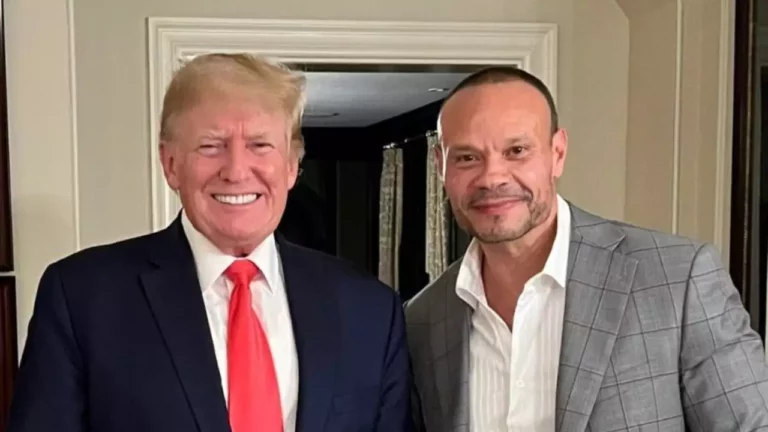 Voting began in two states early Tuesday – Mississippi and Michigan – that are widely expected to solidify the leads of Republican Donald J. Trump and Democrat Hillary Clinton in their respective nominating contests.
Voting began in two states early Tuesday – Mississippi and Michigan – that are widely expected to solidify the leads of Republican Donald J. Trump and Democrat Hillary Clinton in their respective nominating contests.
The latest day of voting, which will also include a Republican primary in Idaho and GOP caucuses in Hawaii, comes at a time when the GOP establishment is in turmoil over how to stop Trump. On the Democratic side, Clinton’s advantage in recent polls of Michigan and Mississippi suggests easy victories that would render Sanders’ path to the Democratic nomination all but impassable.
On Monday, former Republican presidential nominee Mitt Romney recorded a phone call paid for by the campaign of Sen. Marco Rubio, R-Fla., that is being sent to Republicans in all four states voting Tuesday.
“Tomorrow you have the opportunity to vote for a Republican nominee for president,” Romney says in the call. “I believe these are critical times that demand a serious, thoughtful commander in chief. If we Republicans were to choose Donald Trump as our nominee, I believe that the prospects for a safe and prosperous future would be greatly diminished – and I’m convinced Donald Trump would lose to Hillary Clinton. So please vote tomorrow for a candidate who can defeat Hillary Clinton and who can make us proud.”
Trump still leads his GOP rivals, according to a new Washington Post-ABC News poll, but the margin has narrowed and the party is now deeply divided over his candidacy. Trump maintains the support of 34 percent of registered Republicans and Republican-leaning independents, compared with 25 percent for Sen. Ted Cruz, Texas, 18 percent for Rubio and 13 percent for Ohio Gov. John Kasich.
In private conversations in recent days at a Republican Governors Association retreat in Park City, Utah, and at a gathering of conservative policy minds and financiers in Sea Island, Ga., there was an emerging consensus that Trump is vulnerable and that a continued blitz of attacks could puncture the billionaire mogul’s support and leave him limping onto the convention floor.
But the slow-bleed strategy is risky and hinges on Trump losing Florida, Illinois and Ohio on March 15; wins in all three would set him on track to amass the majority of delegates. Even as some party figures see glimmers of hope that Trump can be overtaken, others believe any stop-Trump efforts could prove futile.
This moment of confusion for the Republican Party is made more uncertain by the absence of a clear alternative to Trump. Cruz, Rubio and Kasich each are collecting delegates and vowing to fight through the spring. Among GOP elites, the only agreed-upon mission is to minimize Trump’s share of the delegates to enable an opponent to mount a credible convention challenge.
“It’s one thing if [Trump] goes to the convention and he’s got 48 percent, 49 percent of the delegates,” Tennessee Gov. Bill Haslam, a Rubio supporter, said in an interview. “Then it’s a hard thing to see if there’s a convention floor battle. But if he goes to the convention and he’s got 35 or 40 percent, that’s a whole different thing.”
Cruz, who made a hastily scheduled stopover in Michigan late Monday night, arriving in Grand Rapids at 11, made a pitch to hundreds of voters in a bar who ate complimentary pasta and bought out most of a bar as they waited for him.
“Poll after poll after poll, Hillary trounces Donald Trump,” Cruz said. “To those 65 percent of Republicans who think Donald Trump would be a disaster as the nominee, I want to encourage you to join so many others and unite behind this campaign.”
In a news conference afterward, Cruz – who is roughly tied with Kasich in polls here, behind Trump – refused to speculate on a scenario in which he entered the convention without a majority of delegates. Republican voters, he said, needed to prevent that by backing him.
“A vote for John Kasich, a vote for Marco Rubio, is effectively a vote for Donald Trump,” he warned.
Trump, meanwhile, made the rounds on several television shows Tuesday morning. In a phone interview on ABC’s “Good Morning America,” host George Stephanopoulos asked Trump whether the barrage of attacks were “drawing some blood.”
“No, I think we’re doing very well,” he replied. “But certainly they’re spending tens of millions of dollars fighting me, the establishment.”
Trump noted he was “way up” in the polls in Michigan and Mississippi, was ahead in Hawaii and “doing well in Idaho. I love their potatoes.”
When Stephanopoulos noted that multiple critics had compared him to Adolf Hitler in recent weeks, Trump dismissed the comparison. “I don’t know about the Hitler comparison, I hadn’t heard that.”
“I have to be strong,” he added a minute later. “I have a tremendous following.”
In a separate interview with NBC’s “Today Show” Tuesday, Trump said he was surprised some people thought his decision to ask supporters at rallies to take a pledge to vote for him resembled Nazi rallies more than half a century ago.
“Honestly, until this phone call, I didn’t realize it was a problem,” he said, adding later, “If it’s offensive, if there’s anything wrong with it, I wouldn’t do it.”
Among the Democrats, Sanders held yet another series of enormous rallies across Michigan on Monday, including one that attracted 5,700 supporters in Ann Arbor. There, he scrambled to deny Hillary Clinton’s assertion in a debate Sunday night that he opposed funding the 2008 auto industry bailout, a claim he called “absolutely false.”
Sanders debuted a new minute-long radio ad Monday that accuses Clinton of “trying to distort the truth about Bernie’s record” and says the senator from Vermont “has always been on the side of Michigan workers and working families.”
“Of course I voted to defend the automobile industry,” Sanders told the Ann Arbor crowd.
During the CNN debate broadcast Sunday from Flint, Mich., Clinton said there was “a pretty big difference” between the two candidates on the $14 billion auto rescue package, which was of particular interest to voters in Michigan, as well as in Ohio, which holds its primary next week.
“I voted to save the auto industry,” Clinton said during the debate. “He voted against the money that ended up saving the auto industry.”
Left unmentioned was an earlier Sanders vote in favor of the bailout. The vote that Clinton referenced was on legislation to release funds for a Wall Street bailout, some of which were instead used to help auto manufacturers.
“What I did not vote for was a middle-class bailout for the crooks on Wall Street,” Sanders told his audience there.
At her own event in Detroit on Monday, Clinton made clear to supporters that she is pivoting to focus on a general-election matchup against the GOP.
“The sooner I can become your nominee, the more I can begin to turn my attention to the Republicans,” Clinton said before launching into a riff against the “bluster and bigotry” in the opposing party.
Of Trump, she said: “I mean, you’ve got to say this about him: He’s an equal opportunity attacker. He’s just gone after everybody.”
And she elicited roars from the crowd when she added: “We will not let a person like that ever become president of the United States.”
Former New York City mayor Michael R. Bloomberg said Monday that he will not run for president this election cycle.
“I’m flattered that some think I could provide this kind of leadership,” he said in an essay posted on the website Bloomberg View. “But when I look at the data, it’s clear to me that if I entered the race, I could not win.”
Bloomberg, 74, one of the world’s wealthiest men, used the essay to put to rest months of speculation over whether he would enter the race – and thereby scramble an already chaotic contest – as well as to criticize Trump and Cruz.
(c) 2016, The Washington Post · Abby Phillip, Philip Rucker, Juliet Eilperin










